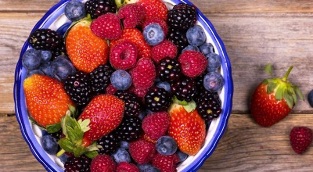
The most common diseases affecting the male reproductive system include prostate adenoma and prostatitis. The second is an inflammatory process that occurs in the tissues of the prostate gland, and the first is a tumor that forms in this organ.
These problems are quite actively diagnosed in men. But everyone knows that proper nutrition can protect against many diseases as well as become a component of the treatment process. Thus, diet for prostatitis and prostate adenoma play a significant role in the treatment of this disease. It helps the healing process be more active and takes less time.
The essence of such a diet is
No one claims that food heals and paralyzes at the same time. Therefore, when abnormal changes are observed in a patient’s body, the doctor will most often prescribe restrictions on the number of foods consumed. A similar diet has been developed to help the male body fight disease affecting the prostate gland.
It is selected individually for each patient, taking into account the severity, general condition and history of the pathology, as well as taste preferences. At the same time, it has been practically proven that it is not possible to recover without changing the system and balance of nutrition.
At the very least, food should not be detrimental to your health - it could become part of your treatment. Therefore, the essence of the diet for prostatitis and prostate adenoma is reduced to alleviate the patient’s condition.
If a person wants to recover, he or she must adhere to restrictions. “Proper” eating slows down the development of pathology and increases the chances of faster recovery.
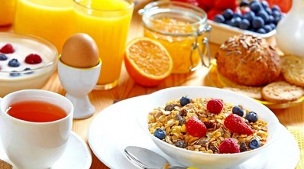
Special attention is paid to products that contain a high percentage of selenium (Se) and zinc (Zn) that have a beneficial effect on the tumor, reducing its size. During treatment, the patient should receive 25 mg of zinc per day and at least 5 μg of selenium.
Products contain large amounts of zinc:
- Seafood: oysters, mussels, shrimp.
- Red meat, mostly lamb and lean beef.
- Wheat germ and bran.
- Buckwheat.
- Watermelon and pumpkin seeds
- Chocolate and cocoa powder.
- Beef liver.
- Sesame.
- Peas.
- Egg yolk.
- Mushrooms.
The second important element, selenium, is found in the following foods:
- Pork and beef liver.
- Rice, barley, buckwheat and oatmeal.
- Octopus meat.
- Eggs.
- Beans and lentils.
- Sea cabbage.
- Pistachio.
- Peas.
- Scallops and shrimp.
- Olive oil.
Also, don’t forget about vitamin E, which increases the efficient absorption of selenium. It should be borne in mind that the diet absorbs only a part (at best - half) of trace elements in the body.
As the study showed, the main cause (catalyst) of adenoma is hormonal imbalance, which has worsened over the years. As you age, your testosterone levels decrease, while your estradiol levels increase. Tumor appearance and growth are also affected by an increase in the amount of adipose tissue. It follows that one way to prevent adenoma should be to control body weight.
In addition, intestinal cleansing should be provided on an ongoing basis. Therefore, diet should be associated with solving this problem. However, before you stick to it, you should study the list of foods you can and cannot eat.
What else is important?
It is not recommended to drink fluids with or just at bedtime. Otherwise, the digestive process deteriorates and at the same time the nocturnal load on the excretory system increases. Water and beverages should be consumed between meals or one hour after a meal.
A balanced diet should be maintained for adenoma and prostatitis, as well as a variety of foods. Protein foods should prevail. The fat content is permissible, but not more than 30%. Basically, these should be vegetable fats.
Don't eat overnight. Weight should be monitored to avoid overeating and the appearance of extra pounds.
Causes of the problem
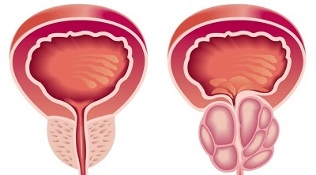
The main causes are hormonal changes and infections. The food consumed can also contribute to the development of such a pathology.
If the disease has entered a chronic stage, you should continue to follow these recommendations, as a violation of the system can lead to exacerbation. The principle of the diet for chronic prostatitis and prostate adenoma is that the food should be light and fast to digest. The other principles of the diet, as well as a list of "beneficial" and "harmful" products, are listed above.
After surgery to remove the adenoma
In addition to certain clinical images, physicians may raise the issue of adenoma excision. After surgery, the patient undergoes rehabilitation, which includes a diet after prostate adenoma surgery.
The main principle is the predominance of vegetables, protein foods and fruits, the reduction of fat, especially animal fat. Preference should be given to vegetable fats, which provide the body with the materials it needs to function normally.
High levels of plant protein in foods have a beneficial effect on the body and this seriously reduces the risk of developing cancer.
The maximum (or totally excluded) restriction applies to products such as:
- Coarse threads.
- Foods containing colors, food additives, preservatives and flavorings.
- High calorie foods with a high percentage of animal fat.
- Fried, spicy and overly spicy foods.
- Smoked meat and pickles.
- Carbonated and caffeinated beverages.
- Alcohol.
Central to the prostate adenoma diet, men should have vegetables and fruits filled with vitamins, fiber, trace elements that activate the digestive process and prevent stagnation of the pelvic organs.
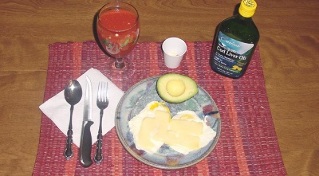
As mentioned above, do not ignore the level of bowel function. In addition to eliminating foods that cause bloating and “settle” the stool, you should also review your diet: take it in small portions, but increase the number of meals. It tones the digestive system, promoting more active production of gastric juice, which can help prevent constipation.
In the postoperative period, prunes, boiled beets, fermented dairy products, dried peaches, carrots, cereals, and other mildly laxative foods appear on the patient’s table.
The diet after BPH should be as follows. In order to shorten the postoperative recovery period, the load on the digestive system and the urogenital system should be reduced. A balanced diet increases the body’s immune status, allowing it to fight disease more effectively and activate hidden reserves for faster recovery.
Diet menu for prostatitis and adenoma
Must be in accordance with the product guidelines above. When the disease worsens, you should switch to eating small portions. The daily diet should be divided into four to six meals. In men, the diet for prostatitis should consist of simple and healthy foods.
Below is a daily meal plan. So a one-week diet for prostatitis may consist of the following menu.
First day
Breakfast:
- Oatmeal.
- Fruit jam. Decaffeinated tea.
Snack: Banana (medium).
Lunch:
- Lean vegetable soup.
- Mashed potatoes.
- Chicken breast in sweet and sour sauce.
- Dried fruit compote.
Snack: Raspberry jelly.
Dinner:
- Cooked squid.
- Stewed cabbage.
Before going to bed - yogurt.
Day Two
Breakfast:
- Cottage cheese.
- Fruit and berry jelly.
- Snack: A handful of nuts.
Dinner:
- Soup cooked in light vegetable soup.
- Boiled fish.
- Salad - any vegetable of your choice (fresh).
- Green tea.
Snack: baked apples with cinnamon and honey.
Dinner:
- Rabbit fried in sour cream.
- Carrot salad with beets.
Before going to bed: milk (bottle).
Third day
Breakfast:
- Barley porridge.
- Raw carrot salad.
- Juice.
Snack: Baked pumpkin with apples.
Lunch:
- Fresh salad of herbs and vegetables.
- Scallops.
- Cooked asparagus.
- Mineral water without gas (glass).
Afternoon snack: fruit salad.
Dinner:
- Fish stew.
- Baked potatoes.
- Fresh cucumbers.
Bedtime: Natural yogurt.
Day Four
Breakfast:
- Boiled eggs.
- Buckwheat porridge.
- Berry jelly.
Snack: Apple.
Lunch:
- Tab.
- Chicken stew.
- Cabbage slices.
- Herbal tea.
Snack: fresh apples.
Dinner:
- Fried chicken in orange sauce.
- Fresh vegetable salad.
Before going to bed: fermented fried milk (glass).
Day Five
Breakfast:
- Cooked rice.
- Soft-boiled eggs.
- Fresh fruits.
Snack: Banana dessert.
Lunch:
- Vegetarian borsch.
- Fish fried on a vegetable pillow.
- Green salad.
- Dried fruit compote.
Afternoon snack: Fruity sorbet.
Dinner:
- Squid stuffed with rice.
- Any vegetable salad.
Before going to bed: kefir (glass).
Day Six
Breakfast:
- Corn porridge.
- A piece of hard cheese (not fat).
- Herbal tea.
Snack: Pear dessert.
Lunch:
- Spaghetti or any other cooked al dente.
- Meat pendants on a vegetable pillow.
- Fresh cherry tomatoes.
- Fresh fruit compote.
Snack: cottage cheese with sour cream and raisins.
Dinner:
- Pumpkin stuffed with vegetables and meat.
- Fresh cabbage salad.
Before going to bed: milk (bottle).
Seventh Day
Breakfast:
- Pearl barley porridge with carrots and onions.
- Vegetable salad.
- Green tea.
Snack: A handful of nuts (whatever).
Lunch:
- Mushroom puree soup.
- Dark bread toast.
- Fresh juice.
Snack: Berry pie.
Dinner:
- Fried fish in foil.
- Vinaigrette.
- Fresh tomatoes.
Before going to bed: kefir (glass).
How to prepare food for such a diet?
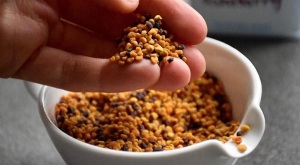
Here are some recipes for men on a BPH diet.
As you can see, they are easy to make at home.
Stuffed poultry fillet
You will need the following to prepare the food:
- Chicken or turkey fillet - 500-750 grams.
- Rice - half a glass.
- Carrots - one (medium size).
- Bulbs - 1-2 pieces.
- Garlic - 5-6 teeth.
- Tomato juice - 0, 5 liters.
- Allspice - a little.
- The salt of your choice (but remember that it is necessary to limit your diet for prostatitis and BPH).
- Basil and other herbs (can be dried).
- Any vegetable oil.
Chicken or turkey fillets should be cut lengthwise. Depending on its thickness, you can get two to three thin slices. If it is not possible to cut it thin, the thick parts should be easily beaten off with a kitchen hammer or rolling pin.
Peel the carrots, cut into thin strips and the onions into half rings. Peel the garlic and cut the forks with a knife.
The rice should be washed thoroughly with several portions of water, cooked soft, kept lightly under the lid, then discarded in a filter bowl and the excess liquid drained. Then add onions, carrots, garlic, basil, pepper and salt. Mix everything well.
Place a little ground rice on the fillet slices in the middle and wrap in an envelope. To ensure that they do not fall apart during further processing, they must be fixed with a toothpick or tied with thread.
Pour a little water into a large saucepan and bring to a boil. Add tomato juice, vegetable oil and onions. In a pan, fry the fillet envelopes in a small amount of oil on each side. The fire should be made quite intense. The meat must have a rind that protects it from drying out and is juicy. Don’t overcook: Food for prostatitis and prostate adenoma should be easy.
After baking, place the stuffed fillet in a pan with marinade and simmer until soft. Remove dental floss or toothpick before serving.
Roasted perch with lemon and herbs
You need the following components:
- Perch fillet - 400 grams.
- Ground bread crumbs - a teaspoon.
- Dill - bunch.
- Lemon is one thing.
- Vegetable oil - three tablespoons.
- The salt of your choice.
Remove all bones from the fish, rinse and dry with a kitchen towel. Make the marinade: mix the biscuits, oil and salt. Add chopped dill. Grease the fish fillets with this mixture.
Place the fish in the oiled pan. In a preheated oven at 180 degrees, approx. Cook the fillets for 15 minutes. Served on the table with lettuce leaves.
























